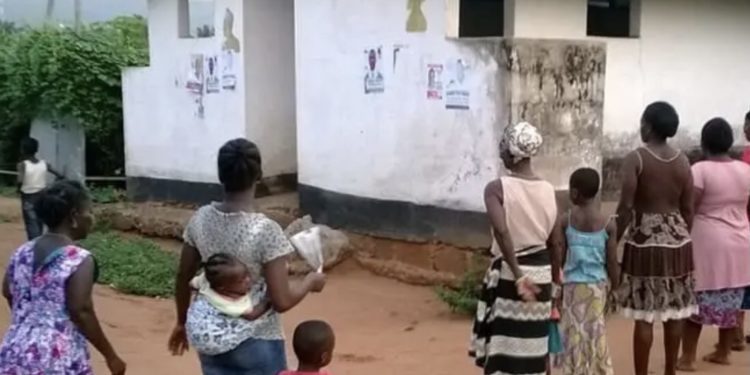Fifty-one per cent of all dwellers in compound houses in Greater Kumasi are without private places of convenience and proper water systems.
This was disclosed by officials of the Greater Kumasi Sanitation and Water Project, who say the situation has created a heavy dependence on public toilets and the use of unapproved places for the disposal of human waste.
Following the implementation of the Sanitation and Water Project in Accra, the Ministry of Sanitation and Water Resources considered it necessary to replicate the project in Kumasi
The Government of Ghana, through the Ministry of Sanitation and Water Resources, applied and received 50 million dollars from the World Bank towards the implementation of the Greater Kumasi Sanitation and Water Project with the objective of increasing access to improved sanitation and improved water supply in Greater Kumasi Metropolitan Area[GKMA].
The project focuses on low-income communities and seeks to strengthen the management of environmental sanitation in the area.
The project was launched in 2020 and is expected to start in October this year and end in 2024.
The project components include increasing access to sanitation services in priority low-income areas, mainly supporting the provision of 30,000 household toilets and 120-unit institutional sanitation toilets in Greater Kumasi.
Since its launch, the project implementation has mainly covered key project start-up activities, including project stakeholder engagement and sensitization, baseline assessment and procurement for project-related consultancy services and service providers.
Out of a total of 7,141 households sampled for baseline assessment in the eight Metropolitan and Municipal Assemblies of Greater Kumasi, 70percent of the residences were compound houses, 15 per cent private residents, 11 per cent apartment/tenement, 4 per cent uncompleted houses and 1 per cent improvised homes.
The assessment further revealed that 51 per cent of houses assessed did not have any form of toilet facility and they are all compound houses.
Out of the 49 per cent of houses that had toilet facilities, 6 per cent reported that toilet facilities were not functioning.
The project has also carried out a preliminary assessment of 275 public schools and health care facilities proposed for the project intervention in all the eight assemblies in Greater Kumasi.
The Project Coordinator, George Asiedu, hinted that the project has completed the selection of service providers for the construction of household toilets and the consultants for the designs and preparation of tender documents for the construction of institutional sanitation facilities across the assemblies.
The Minister of Sanitation and Water Resources, Cecilia Abena Dapaah, appealed to all to support the project.
Source:3News.com


















